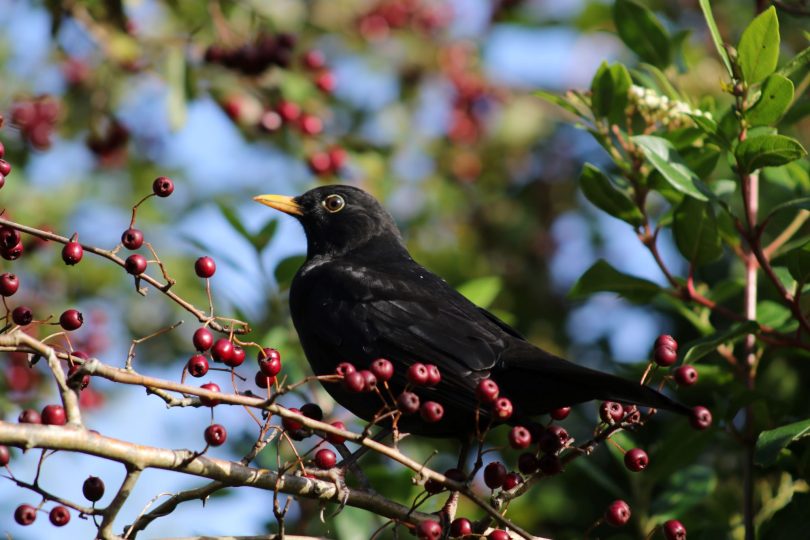In the UK each day we’re bombarded with stories about the NHS – how they are overrun and understaffed. How their limited resources are in need by so many more each day. It’s a bleak picture – but what if there was another NHS? What if there was one we could access daily, one that would be there for us whenever we needed it, at no cost? Would you use it? I’m guessing the answer is yes? Do you know what – there is.
It’s Nature’s Health Service.
It’s right outside your door, outside your window. You may even have some of it in the room with you right now.
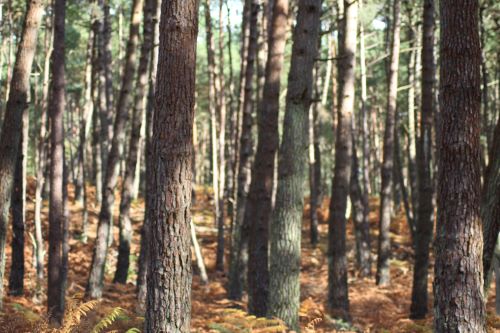
It’s no great surprise that when we went into the nationwide lockdowns in March 2020 we turned to the great outdoors for comfort and solace. That one permitted daily excursion from your home provided a break from the same four walls. We all know that exercise is good for us – whether it’s walking, running, cycling, wild swimming or, if you’re like me, forest bathing. Time spent outdoors in nature exercising has additional benefits to both you physically and mental health that you may not be aware of.
Immune System Boost
Trees (and plants, hedgerows and even some seaweed) all emit a volatile organic compound called a phytoncide. As scary as it may sound – it’s actually their first line of defence against some fungi and certain diseases. From some research carried out by Dr Qing Li in the 1980’s it was found that when we absorb these phytoncides into our system (which later research has shown is predominantly through the sense of smell) they boost our NK cell count. What are our NK cells? They are our Natural Killer cells – a special type of white blood cell that, as part of our immune system, acts as our bodies first line of defence against some diseases and cancers. Research carried out in Japan, based on the practice of Shinrin Yoku (forest bathing) has shown that the benefits of spending a couple of hours out in nature can stay with you for up to 28 days (based on 4 hours spent in a forest environment).
Mental Health Benefits
We may be living in 21st century Britain but actually our bodies haven’t evolved much from our hunter gatherer ancestors – especially our nervous system. Within our central nervous system we have our autonomic nervous system which comprises the sympathetic nervous system and the parasympathetic nervous system.
The sympathetic nervous system is also known as fight or flight. It helps direct the attention and energy from our body into keeping us safe when we come up against a stress factor. This is where we should only be spending short bursts of time. The parasympathetic nervous system is our rest and digest mode – this is where we should be spending most of our time. Think back to our hunter gatherer ancestors – their sympathetic nervous system would have been triggered into action when they perhaps encountered a bear, a wolf or mountain lion. They would focus their energy into safely getting out of harm’s way. In modern times the triggers are more likely to be emails coming in, social media notifications, text messages, phone calls, watching the news … there is this constant barrage of triggers that keep us in our sympathetic nervous system … and that’s not great for our health.
Biophilia Hypothesis
Time spent outdoors in nature is proven to trigger your parasympathetic nervous system.
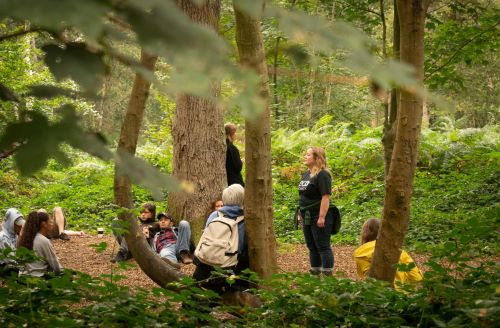
Whether you’re conscious of it or not – when you hear the sound of bird song or perhaps the gentle ripple of water in a babbling brook, they are helping to get you into the rest and digest mode. Why is that? It’s the biophilia hypothesis – going back to our hunter gatherer ancestors, we have a deep-rooted familiarity with natural sounds. They offer comfort – they also tell us that life can be sustained and therefore you are safe. It’s your subconscious that picks up on these sounds and then kick starts your parasympathetic nervous system.
Attention Restoration Theory
Intense concentration on anything can be really draining. By either taking a break in or simply viewing what could be described as a “restorative environment” it can help reduce our mental fatigue. Known as the Attention Restoration Theory that was developed by Rachel and Stephen Kaplan in the late 1980’s – there are four key components that make an environment “restorative”:
- Fascination – it needs to hold one’s attention softly, be something that requires little attention and enables mental reflection – for example waves crashing on a shoreline.
- Being Away – it needs to be an environment that is psychologically or physically removed and distant from your everyday life.
- Being Away – it needs to be an environment that is psychologically or physically removed and distant from your everyday life.
- Compatibility – it needs to be an environment that the person actively wishes to be engaged with and exposed to.
The great outdoors, no matter what the environment – from rugged coastlines to the lakeland fells, from riverbanks to forests – has something there to suit the needs of most people.
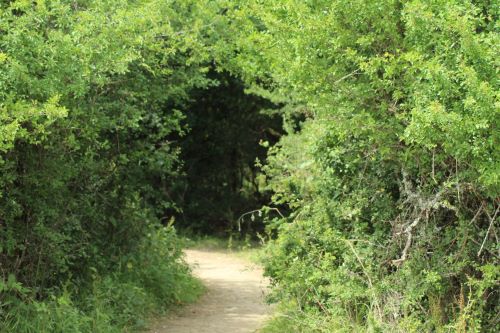
Even if you can’t get outside in person – looking at a photograph of a natural environment, listening to a soundscape or using essential oils will all have beneficial effects on your mental health.
Nature Therapy
Whilst any time outside will help boost your mental and physical health – nature therapy is a gentle practice designed to help support your wellbeing in a natural environment – be it a woodland, beach, park or even your own back garden. Also known as forest bathing – it takes the form of a series of invitations that open up your senses to the world around you and to kick start your parasympathetic nervous system. Sessions are run both in person and remotely (via Zoom) and offer some respite from the stresses of everyday life.
Get Cold
Our ancestors dealt with cold a lot better than we did. They didn’t live in insulated buildings; they didn’t have central heating to put on. Getting a dose of cold has proven benefits for your mind, body and spirit. Studies have shown that just a 30 second blast of cold water at the end of your shower reduces your self-reporting of sickness. Ice baths or cold-water swimming can give your immune system a boost, act as a natural anti-inflammatory, help you sleep better and increase your energy levels. If you’re wanting to try it for yourself – find your local Wim Hof Method Instructor.
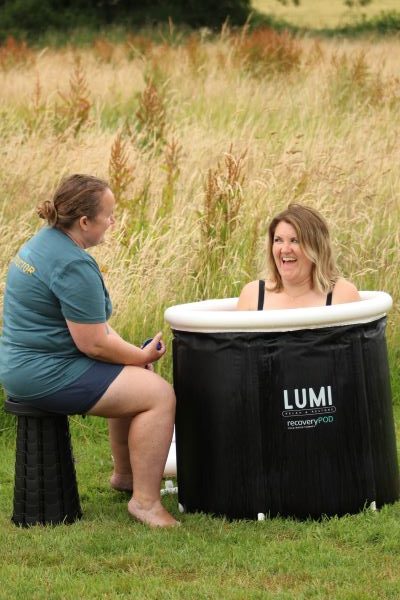
Just Breathe
When did you last pay any attention to your breath? I’m guessing a couple of seconds ago as you read that sentence? It’s the ultimate reciprocal relationship that we have with the natural world. Each breath we take in is the natural world breathing out, and each time we breathe out so the natural world breathes in. We can go for weeks without food, days without water but barely a couple of minutes without taking a breath. But I’m guessing you pay more attention to the food and drink you consume rather than the breaths that you take right? Many health complications in today’s world come from mouth breathing and over breathing. Just doing some simple breathing exercises every day – something everyone can do because we can all breathe – can make a huge difference. Whether you have asthma, an autoimmune condition, long covid, stress and anxiety or just want to give yourself a boost – breathwork may be the answer.
Vitamin N
All of the above and more we can call Vitamin N. Nature is there for us, wanting to support us and offers more than many people realise. There’s no question we need the National Health Service for many things – but for some perhaps the Natural Health Service is better placed to help first?
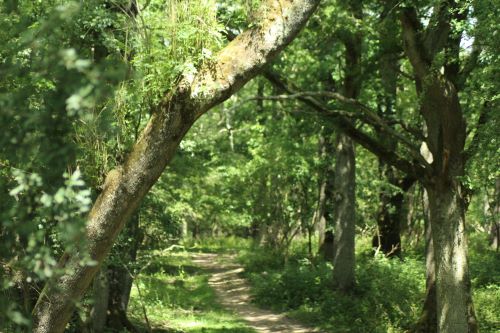
In a world increasingly dominated by technological advancements and the demands of modern life, the concept of Nature’s Health Service emerges as a poignant reminder of an invaluable, accessible resource right outside our doors. As we explore the multifaceted benefits of immersing ourselves in the natural world – from the immune-boosting wonders of phytoncides to the soothing melodies triggering our parasympathetic nervous system – the evidence is compelling…
The great outdoors, with its diverse landscapes and restorative environments, stands as a universal remedy for both physical and mental well-being.
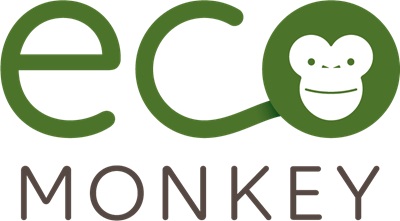
Main – Photo by Sebastian Unrau on Unsplash

